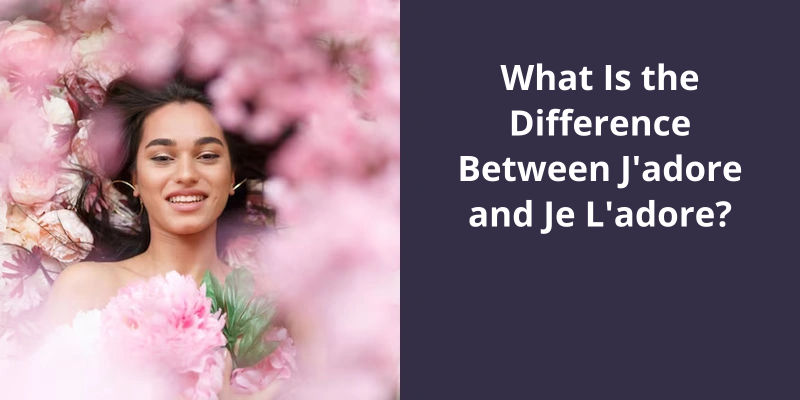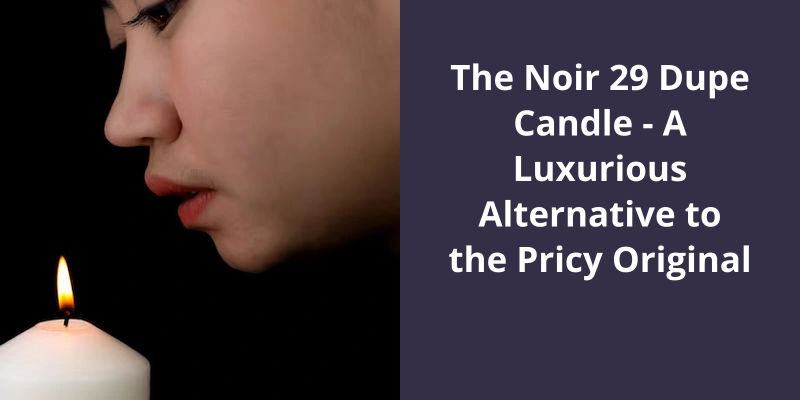J’adore and Je L’adore are both phrases in French, but they carry slightly different meanings due to the inclusion or exclusion of the pronoun “je.” J’adore directly translates to “I adore” in English, and it’s commonly used to express a high degree of love or like for something or someone. On the other hand, Je L’adore translates to “I adore him/her/it.” The use of “Je L’adore” specifies the object or person being adored, making it more personal or exclusive. The choice between the two would solely depend on the context: whether you’d like to express general love or point to something or someone specifically.

What Does J Adore Mean French?
The phrase is composed of two French words – “j” and “adore” – of which “j” is short for “Je” which means “I”, while “adore” means to adore or enjoy greatly. So literally translated, “Jadore” means “I adore” – a phrase used to express strong affection or fondness for something or someone.
For instance, it can mean “I love you” when used to express love and affection between two people. It can also mean “I love it” when used to refer to something like a food, dress or a fashionable accessory.
The phrase “Jadore” was popularized by the high-end fashion brand, Christian Dior in the 1990s as the slogan for their perfume, Jadore Dior. This created further interest in the phrase and it quickly became a widely recognized expression of love and admiration.
It’s important to note that “Jadore” is a very strong expression of positive feeling and should be used carefully and only when appropriate. Misuse of the phrase could lead to misunderstandings or even offend others.
It’s meaning is complex, and context plays a large role in determining how it should be interpreted. It’s become a popular expression used in many different areas, including fashion and beauty.
French Expressions of Love and Affection Beyond “J’adore,” Including “Je T’aime” and “Je T’aime Beaucoup.”
This article discusses expressions of love and affection in French beyond simply saying “J’adore.” It explores phrases such as “Je t’aime” (I love you) and “Je t’aime beaucoup” (I love you very much), which can help individuals better express their love and deepen their relationships.
Now that we understand the difference between the French phrases “je t’aime” and “je t’adore,” let’s explore the cultural and linguistic reasons behind their usage. It’s important to note that while these phrases may seem interchangeable to non-native speakers, they carry distinct meanings and connotations within French language and culture. So, why do the French say “je t’aime” and not “je t’adore?” Let’s find out.
Why Do the French Say Je T Aime and Not Je T Adore?
The choice to use “je taime” over “je tadore” in expressing romantic love is rooted in the French languages semantic nuances. In French, there are multiple words for love, each with their own specific connotations. “Aimer” and “adorer” are two of the most commonly used ones. While both express affection, “aimer” is associated with more emotional intimacy, while “adorer” is linked to a more intense form of love, such as adoration or worship.
It’s the go-to phrase for couples to use when expressing their emotions to one another. However, this varies on both personal preference and regional customs within France.
It’s worth noting that while “je tadore” might not be as common in romantic contexts, it doesn’t mean that it isn’t used at all. In fact, one might use it to express their affection for a close friend or family member in a more elevated way. For instance, someone might say “je tadore” instead of “je taime” to a best friend to denote a deep sense of appreciation and care.
Language isn’t just about the words we use but also about the culture and social norms that shape our communication. The French, with their unique history and passion for romance, have developed a language that reflects their sentiments. The phrase “je taime” is recognized worldwide as a symbol of love, largely due to French cultures influence on Western culture.
Each word is used regarding different relationships or situations.
The History of the French Language and It’s Influence on Romantic Expressions.
This article explores how the French language has evolved over time and it’s impact on the way we express romantic sentiments. It provides a brief overview of key moments in the history of the language and insights into the ways in which it’s unique features have shaped the language of love.
Source: French – the language of love – The Connexion
When you hear someone saying “La Adore” or “je l’adore,” it simply means that they love or adore something or someone. The phrase can be used in different contexts to express different levels of affection, from liking something to absolutely loving it. In this article, we will focus on the meaning of La Adore and how it’s commonly used in everyday conversations.
What Is the Meaning of La Adore?
La Adore is a phrase that translates to “I love it” or “I love her” or “I adore it” or “I absolutely love” or similar variations of these phrases. It’s a common expression used in the French language, which is known for it’s romantic and passionate culture.
The phrase “je ladore” specifically means “I adore him” or “I adore her.”. It’s often used to express strong affection towards someone, whether it be a romantic partner, a family member, or a close friend. The phrase conveys an intense emotion that goes beyond just liking someone or something.
The power of La Adore lies in it’s ability to evoke strong emotions and feelings of love and adoration. Whether it be towards a person, a pet, a place, or an object, the phrase conveys a deep sense of appreciation and affection. It’s a testament to the enduring nature of love and the importance of expressing our feelings towards those we care about.
It’s a declaration of intense emotion that goes beyond mere liking or appreciation. Whether spoken in French or translated to English, the phrase embodies the power of love to connect us to one another and to the world around us.
How to Properly Use “La Adore” in French Conversation
“La Adore” isn’t a proper French expression and can’t be used in conversations. It would be best to avoid using it altogether and instead, use standard French expressions.
The question of whether adore and love are the same has been a topic of debate for many years. Some argue that they’re interchangeable, while others believe that there are distinct differences between the two. However, one thing is certain: adore is a powerful emotion that signifies a deep level of affection and respect for another person. Let’s explore this concept further.
Is Adore the Same as Love?
Although similar in nature, it’s important to note that adore and love aren’t quite the same thing. While love is a more complex emotion that encompasses a wide range of feelings including passion, intimacy, and commitment, adore typically refers to a strong affection and admiration for someone.
To adore someone is to hold them in high regard and have a deep appreciation and respect for them. It’s often described as a pure and innocent form of love, without the passionate and emotional complexities that come with being in love. Adoration may also manifest itself in the form of admiration, such as when one looks up to someone as a role model or inspiration.
Adoration may be more commonly associated with familial or platonic relationships, whereas love is often thought of in the context of romantic relationships. However, this isn’t to say that adore can’t exist within a romantic relationship or that love can’t exist in other types of relationships.
What Are the Different Types of Love and How Do They Relate to Adoration?
Love can take many different forms, including romantic love, platonic love, familial love, and self-love. Adoration is a form of love that involves deep affection and respect for someone or something, usually without romantic or sexual connotations. Different types of love can still include elements of adoration, such as a mother’s love for her child or a friend’s admiration for a close companion.
As we delve deeper into the nuances of the French language, it’s important to understand the distinction between similar terms. One such differentiation is between “adorer” and “aimer” – both of which can be translated to “love” in English, but in reality, have differing use cases. So, let’s explore what sets these two verbs apart.
What Is the Difference Between Adorer and Aimer?
The French language is known for having a rich vocabulary that contains different words for expressing various emotions and sentiments. When it comes to expressing ones fondness or admiration for someone or something, the words aimer and adorer are commonly used. Despite their similarity in meaning, there’s a subtle difference between these two words.
On the other hand, adorer means to adore or to worship. It’s a stronger word than aimer and expresses a more intense level of admiration or devotion towards someone or something.
It’s also important to note that the context in which you use these words can affect their meaning. For instance, if you say “jaime ton nouveau pull” to a friend, it translates to “I like your new sweater” which is a more casual way of expressing your fondness for someone or something.
The main difference between aimer and adorer lies in the intensity of the emotions they convey. These words are important in expressing ones emotions and sentiments, and the appropriate usage of them can affect the message being conveyed.





